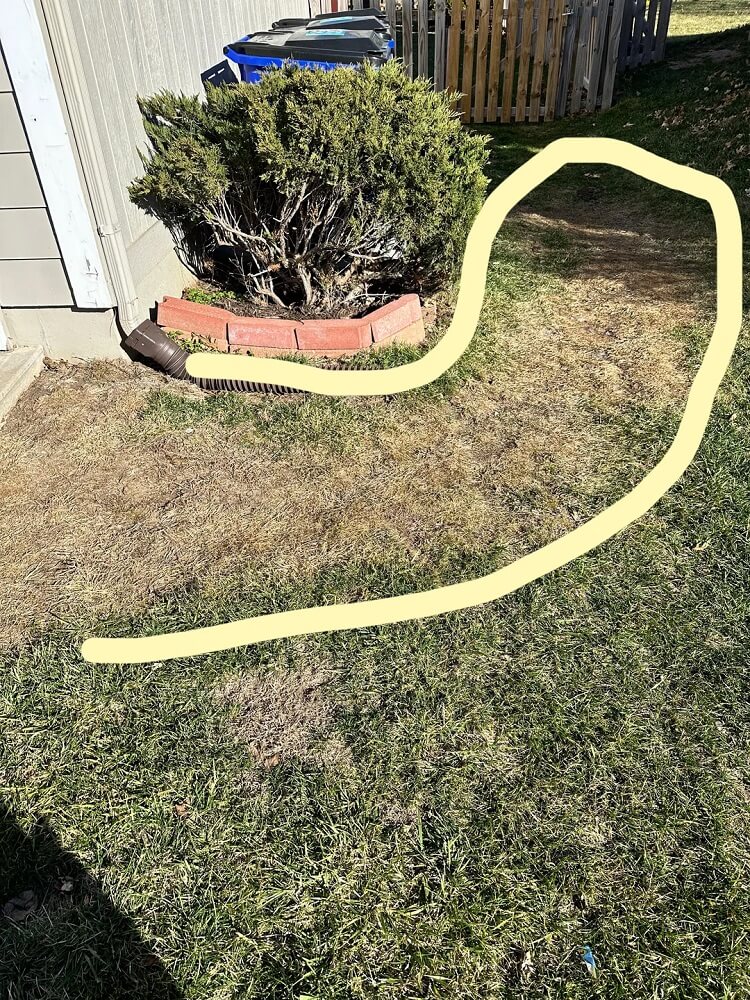Temporary seasonal fixes can often be exactly that — temporary.
A Kansas man went to the r/lawncare subreddit for advice after a winter solution backfired once the snow melted.

The post explains that it was so cold the snow-covered lawn had turned into ice. Not wanting to slip, the Redditor's wife put de-icer in the yard to make a path to the garbage bins.
"I'm basically dealing with a 'salting of the earth' and whatever other chemicals are in those bags," the original poster wrote.
The photo shows the area of concern, which is essentially a path of dead grass.
De-icers often contain rock salt, as well as harmful chemicals, which results in soil and water contamination. This poses a threat to animal and plant life as well as infrastructure.
Earth911 suggests de-icing or traction alternatives such as sand, kitty litter, fire ash, alfalfa meal, and birdseed. There's also the DIY option, as presented by Reader's Digest, combining hot water, dish soap, and rubbing alcohol. This is a great natural solution using things you already have at home, which saves you a trip, money, and time.
While highly manicured grass lawns have become a point of pride for some, it might be worth considering a native plant lawn.
Rewilding is a great way to bring pollinators to the yard while saving money on water, fertilizers, and pesticides.
Pollinators are vital to our food supply. Even transforming a small portion of your yard into a low-maintenance natural lawn using clovers or wildflowers is pollinator-friendly and benefits all of us.
Redditors came to the rescue, offering all kinds of solutions for the salted ground.
"Work with it rather than fight it," one commenter suggested.
With the grass already dead, several comments agreed that a paver stone pathway would be the logical fix since it's a high-traffic area.
"Salts latch onto the soil … planting new grass won't do anything as long as the soil is still salty. Gypsum makes the soil let go of the salt so water can more quickly flush it out. Once the soil stops being salty, your grass may spread and fill back in on its own," another offered.
"Or dig up, bring in new soil and seed/sod," wrote a third.
Join our free newsletter for easy tips to save more, waste less, and help yourself while helping the planet.









